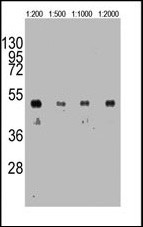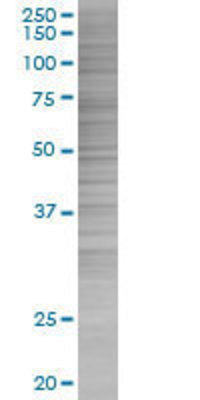| Gene Symbol |
CDK7
|
| Entrez Gene |
1022
|
| Alt Symbol |
CAK1, CDKN7, HCAK, MO15, STK1, p39MO15
|
| Species |
Human
|
| Gene Type |
protein-coding
|
| Description |
cyclin-dependent kinase 7
|
| Other Description |
39 KDa protein kinase|CAK|CDK-activating kinase 1|TFIIH basal transcription factor complex kinase subunit|cell division protein kinase 7|cyclin-dependent kinase 7 (MO15 homolog, Xenopus laevis, cdk-activating kinase)|homolog of Xenopus MO15 Cdk-activating kinase|kinase subunit of CAK|p39 Mo15|protein kinase|serine/threonine kinase stk1|serine/threonine protein kinase 1|serine/threonine protein kinase MO15|serine/threonine-protein kinase 1
|
| Swissprots |
Q9UE19 Q9BS60 P50613
|
| Accessions |
AAM77799 EAW51300 EAW51301 P50613 AK026509 AK308493 AM392563 CAL37441 AM392604 CAL37482 AM392628 CAL37506 AM393110 CAL37988 BC000834 AAH00834 BC005298 AAH05298 BI520184 CA437275 L20320 AAA36657 X76171 CAA53766 X77303 CAA54508 X77743 CAA54793 X79193 CAA55785 Y13120 CAA73587 XM_005248398 XP_005248455 XM_005276756 XP_005276813 XM_011543093 XP_011541395 XM_011543094 XP_011541396 XM_011546944 XP_011545246 NM_001799 NP_001790
|
| Function |
Serine/threonine kinase involved in cell cycle control and in RNA polymerase II-mediated RNA transcription. Cyclin- dependent kinases (CDKs) are activated by the binding to a cyclin and mediate the progression through the cell cycle. Each different complex controls a specific transition between 2 subsequent phases in the cell cycle. Required for both activation and complex formation of CDK1/cyclin-B during G2-M transition, and for activation of CDK2/cyclins during G1-S transition (but not complex formation). CDK7 is the catalytic subunit of the CDK-activating kinase (CAK) complex. Phosphorylates SPT5/SUPT5H, SF1/NR5A1, POLR2A, p53/TP53, CDK1, CDK2, CDK4, CDK6 and CDK11B/CDK11. CAK activates the cyclin-associated kinases CDK1, CDK2, CDK4 and CDK6 by threonine phosphorylation, thus regulating cell cycle progression. CAK complexed to the core-TFIIH basal transcription factor activates RNA polymerase II by serine phosphorylation of the repetitive C-terminal domain (CTD) of its large subuni
|
| Subcellular Location |
Nucleus. Cytoplasm. Cytoplasm, perinuclear region. Note=Colocalizes with PRKCI in the cytoplasm and nucleus. Translocates from the nucleus to cytoplasm and perinuclear region in response to DNA-bound peptides.
|
| Tissue Specificity |
Ubiquitous.
|
| Top Pathways |
Cell cycle, Nucleotide excision repair, Basal transcription factors
|

